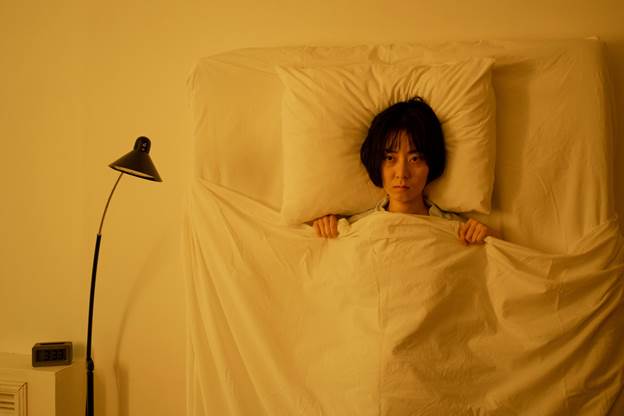The Struggle for Success
There’s a new culture encouraging students to strive for success at whatever cost. At 8:00 A.M in most universities across the UK, US, and Australia, it is common to find students in the library already, some seated up on their dorm tables working hard for success.
Every student seems to be fighting exhaustion – yet sacrifice has become the lowkey buzzword to justify the struggle students are going through.
Pulling an all-night study session has become mainstream, almost being likened to a badge of honor – a proof that you are working hard and headed to success in your studies. Beneath all this ambition and resilient culture lies an often-unsaid epidemic - cognitive fatigue.

We are living at a time where excellence is the only standard that appeals to social standards. However, burnout is a common occurrence that comes with the risk of neurological and psychological risks. If it persists, cognitive fatigue can erode a student’s memory, jeopardize their creativity, and even affect their mental health and wellbeing.
The pattern of constantly being productive is common in most academic settings with students feeling more overwhelmed and unmotivated. Let’s unpack the reasons behind this reality, and explore ways students can strike balance between being productive and protecting their mental health and well-being.
Cognitive Fatigue – What is it?
Cognitive fatigue can be defined as a feeling of mental depletion. It is more than being tired and is a result of continuous focus, sleep deprivation, anxiety, and stress. Long hours of wakefulness and focus is a common cause of cognitive fatigue and can mimic someone who is intoxicated.
Cognitive fatigue happens when students spend long hours studying for exams, struggle to finish essays. As a result, their prefrontal cortex (which is responsible for their attention, decision, and memory,) gets an overload which results in;
- Poor retention and memory
- Slower processing speed
- Irregular shifts in mood and control
- Poor decision-making

I am sure you have felt foggy at times, especially after spending long hours on a task. When you decide to pull that all-nighter for that exam, you have felt emotionally numb at times.
This is what cognitive fatigue is all about, and you should learn about it so you can protect your mental health well-being for improved functionality.
Why constant productivity is eating away your mental health
It is no secret that pulling all-nighters has become a cultural norm of sorts. Today, exhaustion is glorified because of the competitive nature of our academic systems and structure. Coupled with digital era distractions such as social media, mental health issues are on the rise.
In many top-ranked universities, you will often hear – “sleep is for the weak!” It is such phrases that are slowly destroying students’ mental health in these institutions. This content is more common on TikTok and Instagram where ‘Study Hard’ hashtags receive hundreds, sometimes thousands of likes.
It is no wonder mental health issues among university students is at an all-time high. The normalization of fatigue has reached problematic levels. Everyone seems to be overworking and those who fail in keeping up are often ostracized by their peers.
How Cognitive Fatigue Affects your wellbeing
In the short term, cognitive fatigue leads to emotional irritability, decreases your focus, leads to poor decision-making, and can also reduce memory consolidation.

In the long run, students are at risk of depression, anxiety, and prolonged sleep disorders. A recent Harvard Medical School study revealed that sleep deprivation causes cognitive fatigue, which impairs learning by up to 30 percent.
In as much as pulling all-nighters is glorified, this is your chance to take a step back and think about your long-term mental health well-being.
What Can you do to Solve this Problem?
Protecting your mental health should be your main agenda even with the constant need to be productive at all times. It is always important to plan out your time so that you can leave out time for rest and sleep.
It is not usually about sleep. Quality sleep – about 7 -8 hours every night is necessary to boost your mental capacity for boosting energy for the next day. Prioritizing sleep will help you retain more content rather than sitting up your table all night with your retention capacity at almost zero.
You can take cognitive breaks within your study sessions. Lastly, you need an academic support partner to help you through your assignments and exams. At www.TopUrgentEssays.com our experts provide academic guidance that complements your learning to improve your scores. We also guide you through the best academic tools such as Grammarly for organizing, writing, and referencing your work.
In summary, the “no sleep” culture is slowly eating away at your mental health. It is not a symbol of mental strength – it is a silent epidemic affecting more students in universities across the world. Your brain is not a bot – so, you need to find time to care for it, replenish it, and balance between the different responsibilities you have. Avoid exhaustion at all costs and remember - You deserve rest, support, and success — all at once.
If you ever feel overwhelmed and need a helping hand with your assignments choose https://www.topurgentessays.com/Order and avoid burnout!
Your trusted assignment help partner, helping students get ahead with expert support and A+ results.
References
- American College Health Association. (2022). National College Health Assessment III: Undergraduate Student Reference Group Data Report.
- Harvard Medical School. (2023). Sleep, Cognition, and Learning: Understanding Brain Fatigue.
- Killgore, W. D. S., et al. (2023). Effects of Sleep Deprivation on Cognitive Performance and Emotional Regulation. Journal of Sleep Research.
- World Health Organization (WHO). (2023). Mental Health and Student Burnout Report.
- Inside Higher Ed. (2024). Student Support and Performance: The New Metrics of Academic Success.
